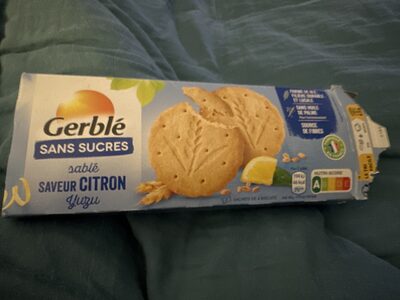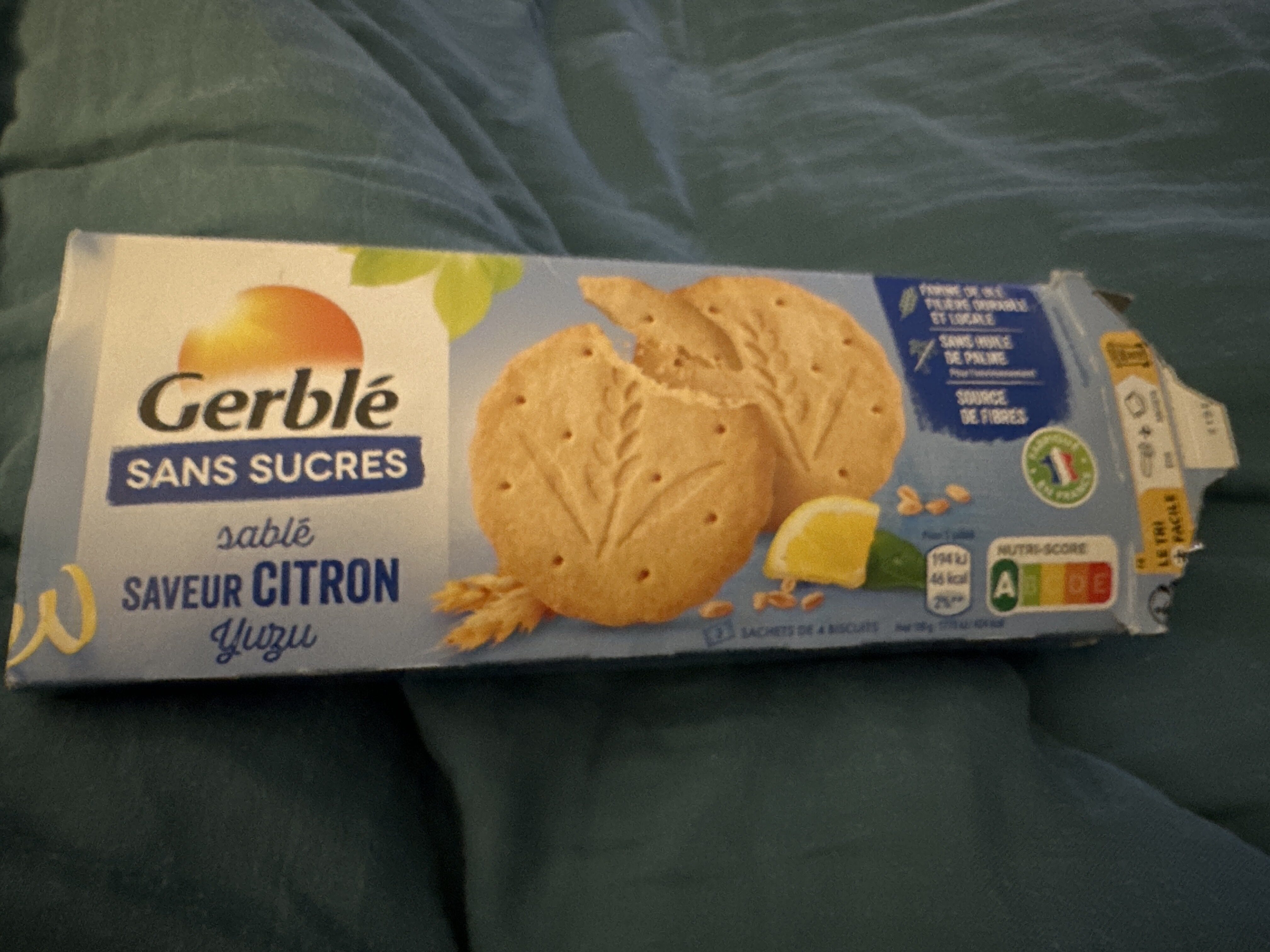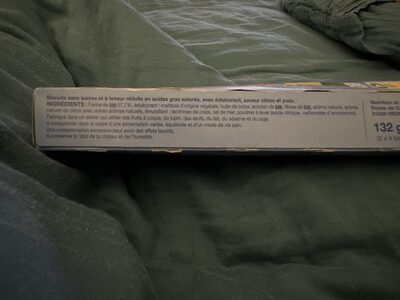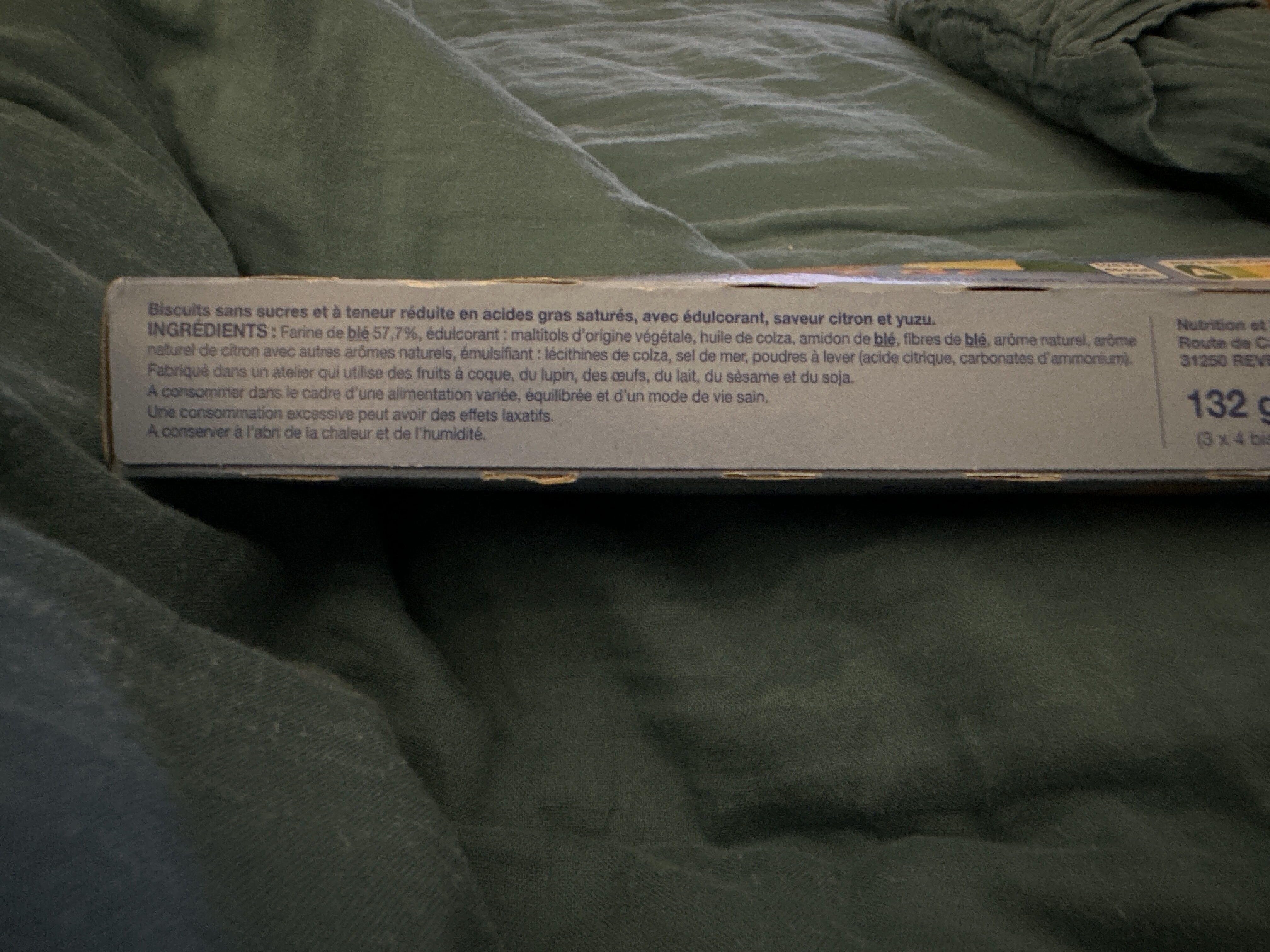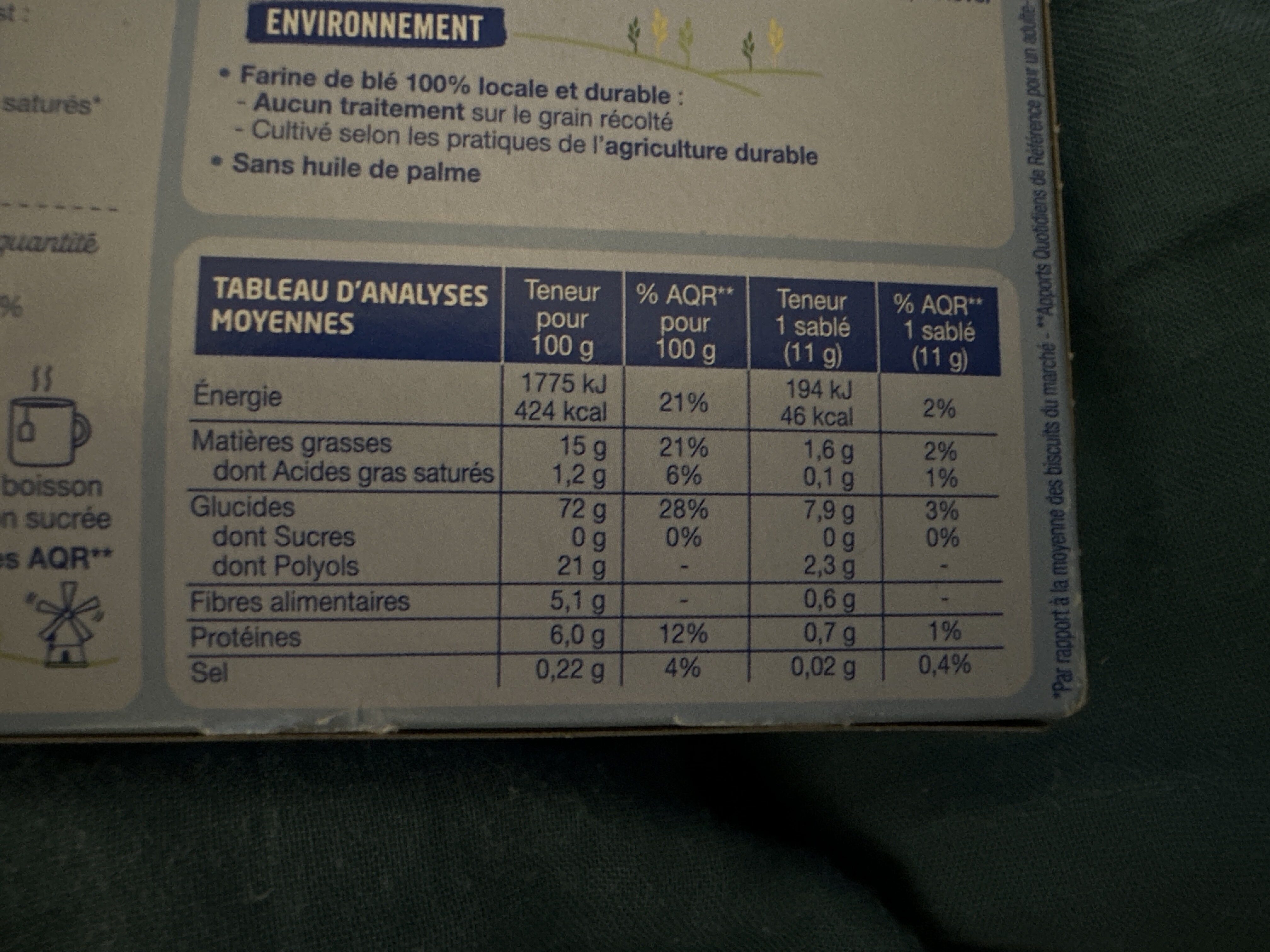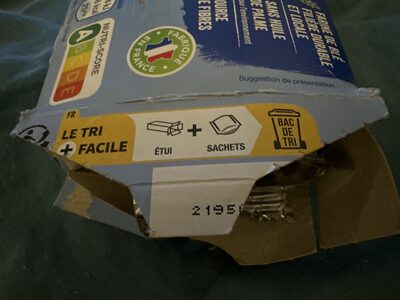Gerblé - Sugar Free Lemon Yuzu Shortbread, 132g (4.7oz) - 132 g, 3 sachets de 4 biscuits
Barcode: 3175681134935 (EAN / EAN-13)
Common name: Biscuits sans sucres, avec édulcorant et arôme citron et yuzu
Quantity: 132 g, 3 sachets de 4 biscuits
Packaging: Cardboard, fr:Etui carton à recycler, fr:Etui en carton, fr:Pensez au tri!, fr:Point vert, fr:Sachet en plastique, fr:Sachet plastique à jeter
Brands: Gerblé
Categories: Snacks, Sweet snacks, Biscuits and cakes, Biscuits, Cakes, Shortbread cookies
Labels, certifications, awards: Low or no sugar, No colorings, No palm oil, No sugar
Origin of ingredients: Toulouse France
Manufacturing or processing places: Toulouse FRANCE
Stores: Magasins U, E.Leclerc, Auchan, carrefour.fr
Countries where sold: Belgium, France, Switzerland
Matching with your preferences
Report a problem
Data sources
Product added on by openfoodfacts-contributors
Last edit of product page on by thaialagata.
Product page also edited by additives-app-chakib, aleene, annelotte, charlesnepote, chevalstar, driveoff, ecoscore-impact-estimator, elttor, ftancky54, kiliweb, magasins-u, moon-rabbit, nexty, omer52, packbot, parisi, piloub, roboto-app, scanbot, segundo, smoothie-app, tacite, teolemon, yuka.R2I0aU1aa0JqZmxUeHRobjVUUHAxOUplOXIrVVRYeXRJdTg4SUE9PQ, yuka.RzRvQk01NFk5L3BWdHYwc3dSalgyUGtvd0xTc0JVbU9kYlVhSVE9PQ, yuka.SEtzTVFLOERwYWc2aS9JNDd6cjZwWU5WK2NXMFJGK3JkdEFBSVE9PQ, yuka.WHBvS0tJUmVtcUlJdDlvMytRUHBvSUpNNExPWFUwZXVNTllnSVE9PQ, yuka.WHEwSEVmOGJvc2dNaWNFTTVCWDI0dlZsL1lYMFRIUG1kZTgwSVE9PQ, yuka.WVprckVyOEVoY2NydGZBNHBTengyTTFFek1PWlFuem1Hc1l6SVE9PQ, yuka.YUlJNkg0SlpqUEFLZ2NNNjFRUHMxYzVFM0xTeVdsR25jTFVRSWc9PQ, yuka.YUtvOVQ2RXUvc0kyb3Njcy8wam41dTVKd2NTalh6bnNCdElBSVE9PQ.
